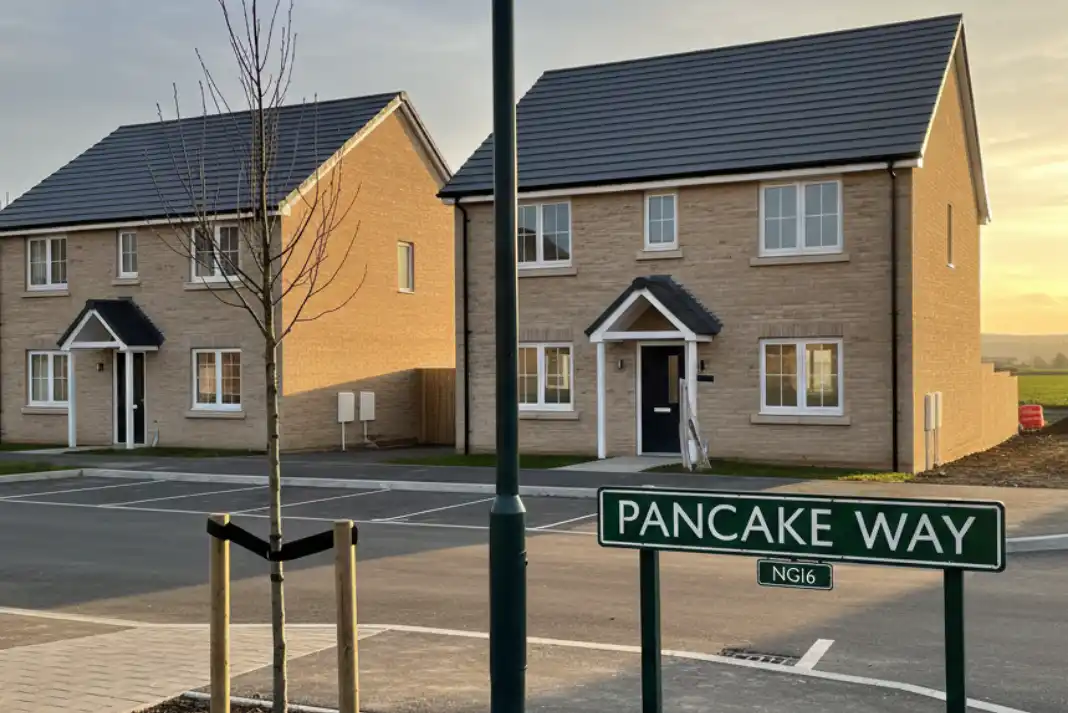The future residents of a new housing estate in Nottinghamshire could live on Pancake Way – named after a “charming” local folk tale involving Danish invaders and the sweet or savoury snack.
Hundreds of homes are being built at Top Wighay farm, near Hucknall and Linby in Notts, by developer Vistry.
The names hark back to the Viking rule of Nottinghamshire and an old folk tale from the village of Linby.
Documents say the names are based on the local legend that the pancake was invented by the women of Linby village to celebrate the defeat of Danish invaders.
According to Gareth Howell, a historical advisor who has hosted talks on the local legend, there are numerous versions of the tale.
Linby itself is derived from Old Norse; “lind” meaning “a lime tree” and “by” meaning “a farmstead, a village, a town”.
The tale dates back to a period following the landing of the Great Heathen Army – or Viking great army – in Anglo-Saxon England more than 1,000 years ago.
Many landed in Norfolk and made their way through Nottinghamshire, which, along with the wider East Midlands, went on to form part of the Danelaw, a section of England under Viking rule.
“Local men heard the Vikings were on their way, so prepared to resist the Vikings,” Mr Howell said, reciting one version of the tale.
“But they had not had breakfast, so the women of Linby village tussled up an emergency breakfast of pancakes, and went out to fight with the men with their frying pans.
“In some versions of the story, the men ran away into the woods, and it was the women who stood and fought.
“We know pancakes massively predate the great army. Otzi the ice-man, a Stone-Age man, had eaten pancakes. We know the Greeks and Romans ate them too. But it is a beautiful story.”
The Top Wighay site is also home to Nottinghamshire County Council’s new £19 million Oak House, and even more homes could be built on extra usable land under the council’s local plan.
The council has a legal obligation to allocate house numbers and names, and street names to new properties and developments.
Mr Howell welcomed the names, adding: “These folk stories help give an area its identity and instil a sense of civic pride.
“It keeps alive these charming stories.”



